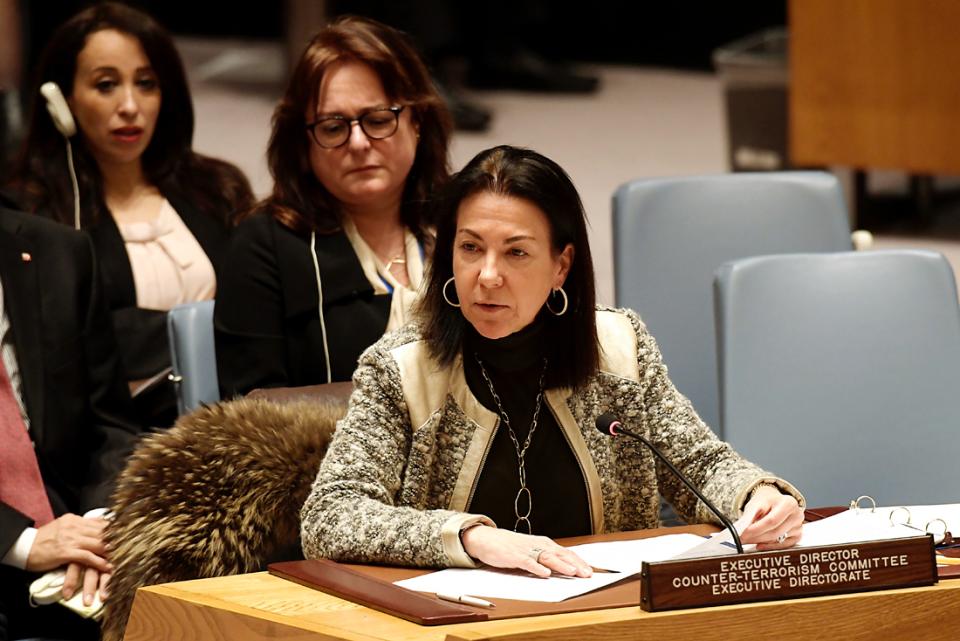
Although Member States have made progress in many areas to stem the flow of foreign terrorist fighters, major challenges still remain, Assistant Secretary-General (ASG) Michèle Coninsx, Executive Director of the Counter-Terrorism Committee Executive Directorate (CTED) told the Security Council in a meeting on threats to international peace and security caused by terrorist acts. In her first briefing to the Council, on 28 November 2017, ASG Coninsx provided a number of examples of existing gaps in the implementation of Security Council resolution 2178 (2014). Fewer than 60 States have so far introduced measures requiring airlines to provide advance passenger information (or API) – meaning that for over 100 Member States verifying the possible presence of a foreign terrorist fighter onboard an aircraft is very difficult. Furthermore, many States still require assistance in establishing the necessary connectivity between national databases and border posts.
In terms of the phenomenon of so-called lone actors perpetrating terrorist acts, ASG Coninsx stressed that they often have received support or resources from elsewhere, including via the Internet or social media. Terrorists are also increasingly using new technologies to transfer funds to such individuals.
“If we are to continue to make progress in promoting and implementing […] the resolution, we must continue to strengthen the partnerships between and among Member States, UN agencies, and partner organizations. Or, to put it another way: it takes networks to beat networks,” ASG Coninsx concluded.
Watch ASG Coninsx’ briefing to the Security Council here.
Watch the webcast of the entire meeting here.

